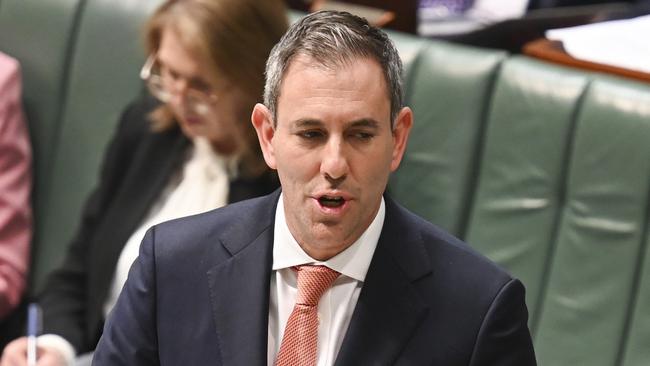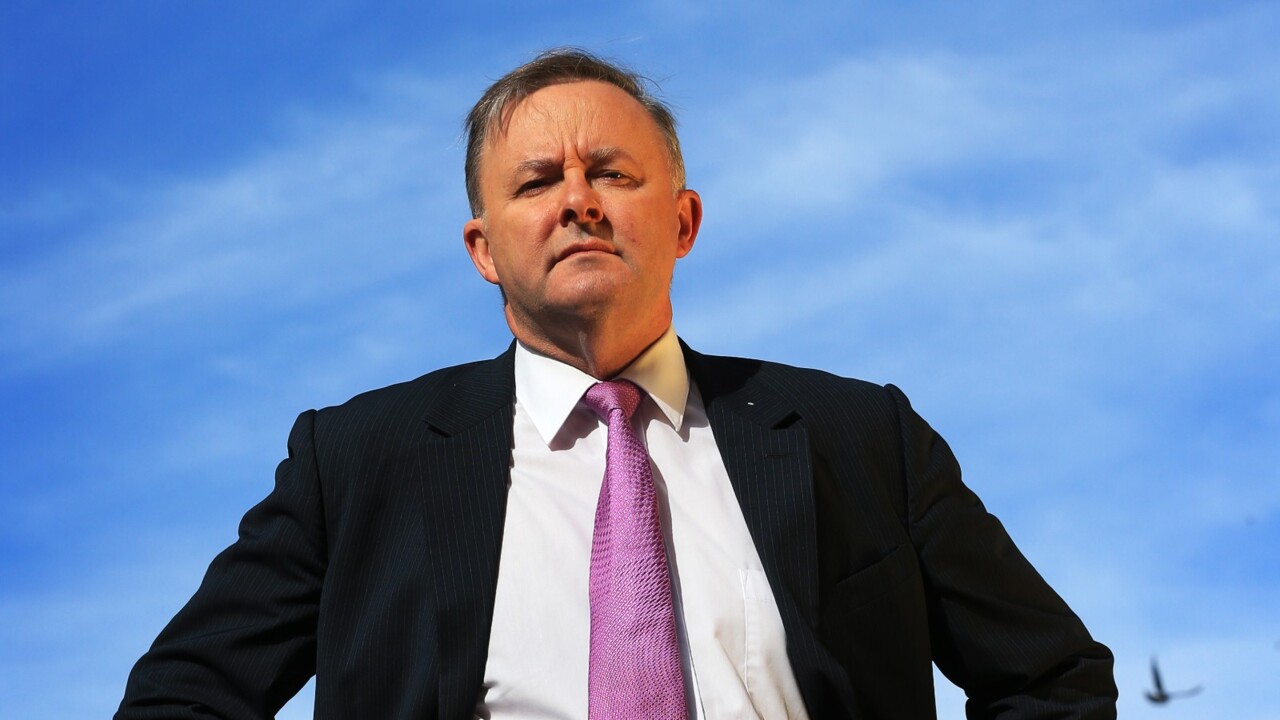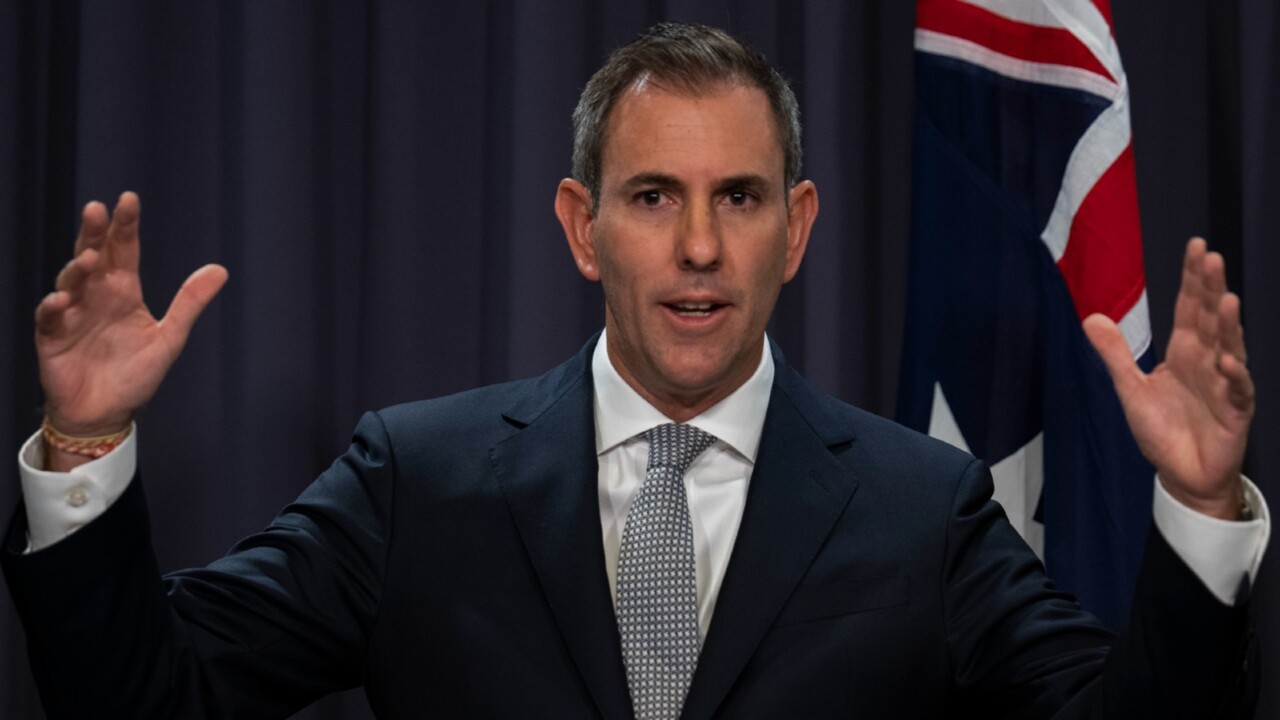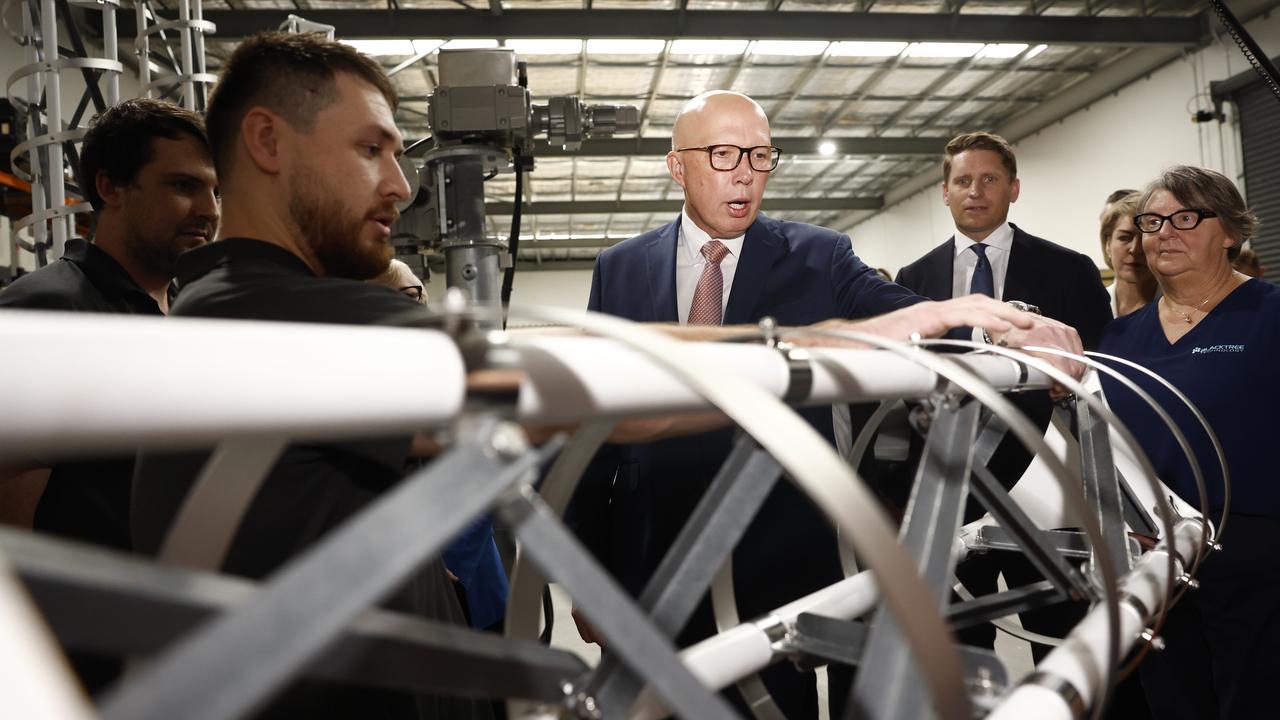$300bn hit going to give workers the tax creeps
Workers will be forced to shoulder the burden of fiscal repair via $300bn in higher income taxes through the coming decade, amid warnings that future governments will not be able to deliver tax relief without deeper deficits.

Workers will be forced to shoulder the burden of fiscal repair via $300bn in higher income taxes in a decade, amid warnings that future governments will not be able to deliver tax relief without condemning the country to deeper deficits.
The finding from the independent parliamentary budget watchdog comes as a new report shows productivity growth stagnated in the first three months of the year, increasing the likelihood rising wages will put upward pressure on inflation.
The Productivity Commission report to be released on Friday shows labour productivity increased by just 0.1 per cent in the March quarter, after the Reserve Bank this month warned productivity growth needed to “pick up in a sustained way if inflation is to continue to decline”.
As cost of living dominated parliamentary question time on Thursday after a shock jump in inflation triggered predictions of a rate hike in August, Anthony Albanese rejected suggestions $3.5bn in energy bill subsidies were making the central bank’s job harder.
“What we have done is to make sure that our measures to provide that cost-of-living support are designed in a way that they will continue to put that downward pressure on inflation. And we make no apologies for the fact that more Australians will get a tax cut next week than they want,” the Prime Minister said.
As Australians look ahead to keeping more of their wages from next week with the introduction of the stage three tax cuts, the Parliamentary Budget Office in a new report found the country remained on a fiscally sustainable long-term path, but this relied almost entirely on workers handing over a bigger share of their pay through rising average tax rates – or bracket creep – every year to 2035.
“There is a significant risk of a continued and increasing reliance on personal income taxes,” the PBO said. “As bracket creep has been operating as a primary mechanism for budget repair, future governments may not be able to provide personal income tax cuts as regularly as in the past.”

The stage three tax cuts, which economists fear will add to too-high inflation, will return some bracket creep, reducing the average income tax rate from 26.1 per cent in this financial year, to 24.6 per cent in the next.
“However, one-off tax cuts have only a temporary effect in reducing the enduring impact of bracket creep in a tax system with fixed income thresholds,” the PBO said.
The budget was on track to eventually return to balance in 10 years, the PBO projected, but that long slog back to a narrow surplus was built on a sharp rise in the average tax rate paid by workers.
“Without further income tax changes, bracket creep is projected to increase the average tax rate for individuals to 28.2 per cent by the end of the medium term in 2034-35, well above historic highs,” it said.
Mounting concerns around the persistence, and even resurgence, of inflation in recent months came as Productivity Commission deputy chair Alex Robson warned that labour productivity “seems to have reverted to the stagnation we’ve seen for most of the past decade”.
Productivity was flat in the three months to March, and has been dragged lower over the past year by booming employment in less productive government-dominated industries, including education, health care and social assistance, and public administration. More than half of the jobs created over the 12 months to March have been in the “care economy”, including industries such as childcare, disability and aged care services, the PC analysis shows.
“Many of these jobs likely went to people who are new to these industries who need time to learn and upskill – putting temporary downward pressure on productivity,” Dr Robson said.
Productivity dropped by 2.2 per cent in this non-market sector in the year to March, against a 0.8 per cent increase in output per hours worked in the market, or private, sector.
“We have seen a major increase in employment in the non-market sector since March last year, but it has not been matched by an equivalent increase in output,” he said.

RBA governor Michele Bullock has repeatedly said that wages growth at about 4 per cent was not consistent with returning inflation back to target without a lift in productivity.
Citi on Thursday was the third bank to say the shock inflation figures, which showed consumer price growth accelerating from 3.6 per cent to 4 per cent, meant mortgage holders should brace for a 14th rate hike at the next RBA board meeting in early August. Citi chief economist Josh Williamson warned there could be another hit to mortgage holders later in the year “if inflation doesn’t behave”.
The RBA board last week flagged a growing concern that a parade of large spending initiatives by federal and state governments “may also have an impact on demand, although federal and state energy rebates will temporarily reduce headline inflation”.
Jim Chalmers will use a speech on Friday morning to signal monthly financial statements for May will show a surplus far higher than $9.3bn predicted in the budget for the 2023-24 financial year.
“But the high figure you’ll see published today isn’t necessarily where we’ll end up,” the Treasurer will say. “Some softness in our tax take, when compared to payments, might still result in a surplus that’s a bit smaller or a bit bigger than we forecast in the budget.”
The Treasurer will deny that the extra $9.5bn in commonwealth spending in 2024-25 announced in May would add fuel to a still hot inflationary fire. He will also say “Very significantly, the governor of the Reserve Bank has confirmed that our two surpluses are helping in the fight against inflation.”

The PBO analysis showed that in 10 years, income tax revenue would account for 52 per cent of total government revenue, up from an estimated 47 per cent in 2024-25. To demonstrate how heavily the federal government was relying on bracket creep to pay for structurally higher spending, the PBO showed that holding workers’ average tax rates constant over the coming decade would by 2034-35 blow a hole in the budget worth more than 2 per cent of GDP, equivalent to a roughly $60bn deficit today.
“If personal income tax cuts were provided consistently (even if they did not fully compensate for bracket creep), while spending on grants and operating costs continued in line with recent historical trends, the budget would remain in deficit throughout the medium term and beyond,” the report said.
As a share of the economy, the personal tax take will climb from 12.5 per cent to 14 per cent over the coming decade, which would leave Australians paying $300bn more in total personal income tax across the decade to 2034-35, according to the analysis.
In addition to a creeping over-reliance on taking a larger share of Australians’ pay packets, there was also the challenge of a faster than anticipated drop in fuel excise, partly as a result of the growing popularity of electric vehicles.





To join the conversation, please log in. Don't have an account? Register
Join the conversation, you are commenting as Logout